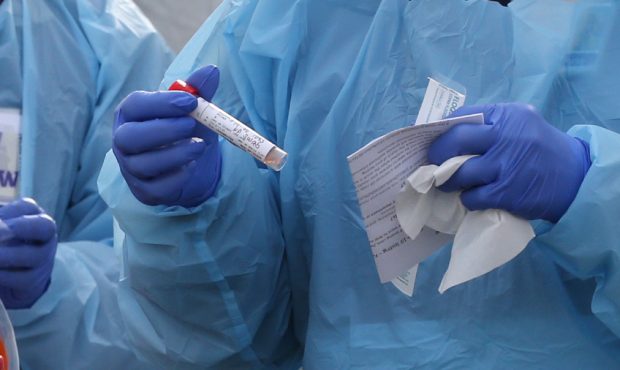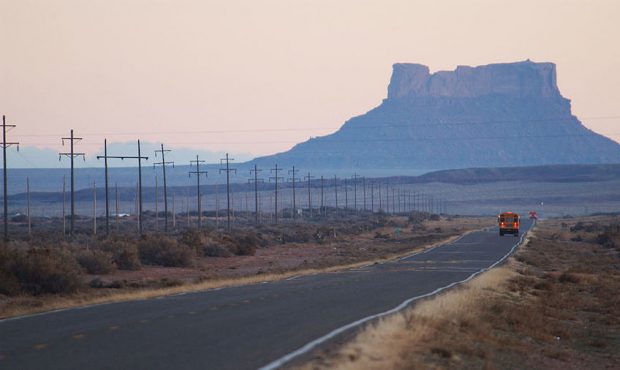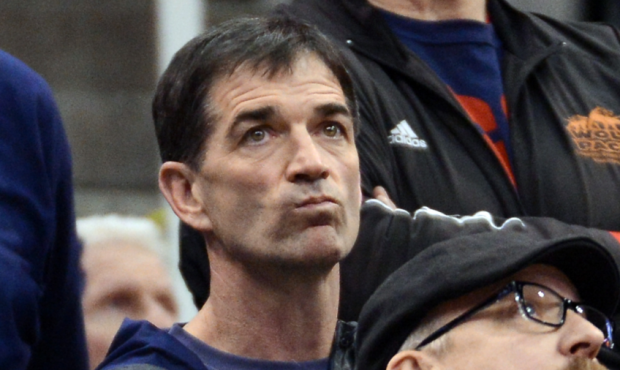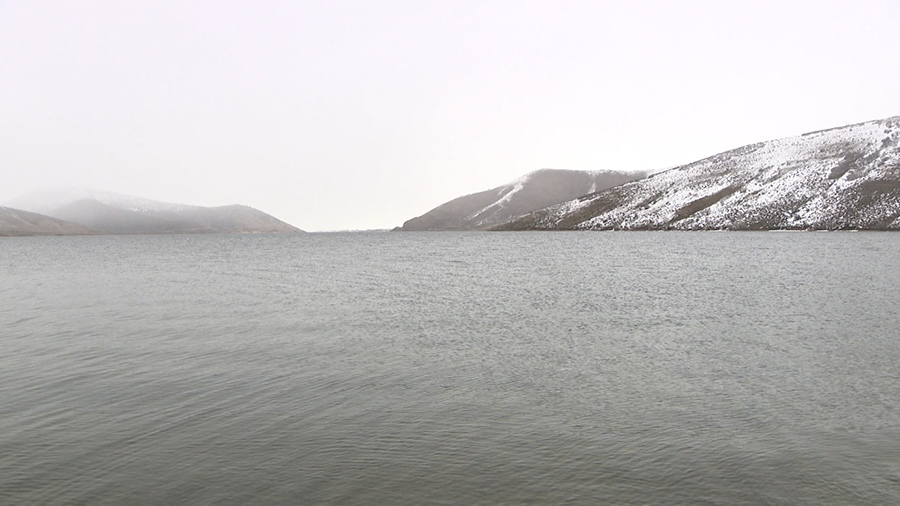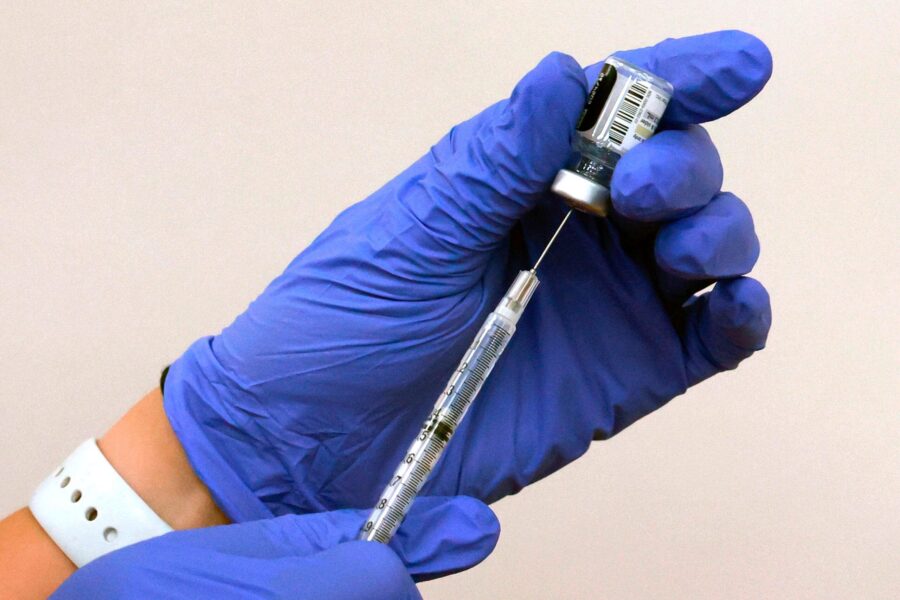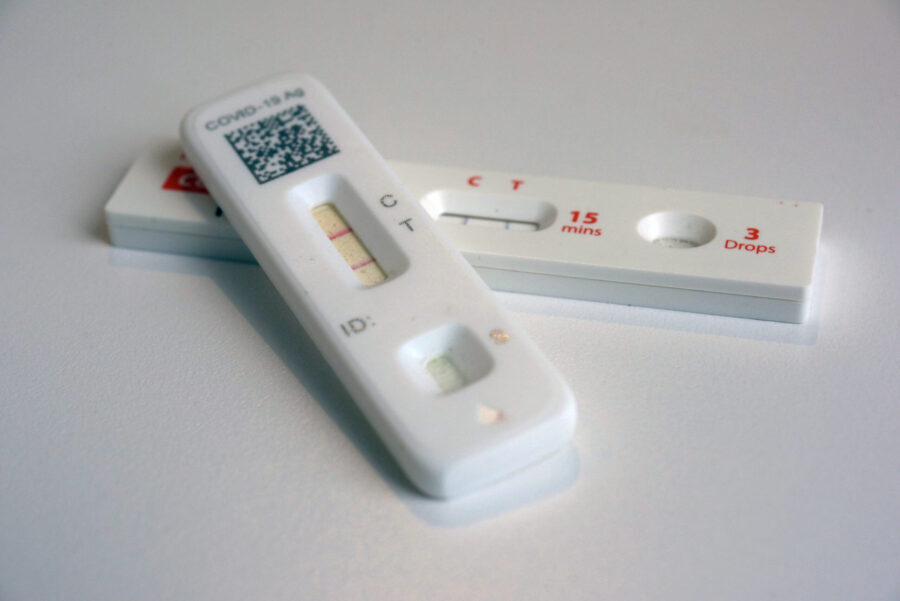Navajo Nation Hit Hard By Virus, Enters Lockdown
May 16, 2020, 11:12 PM | Updated: May 17, 2020, 4:42 pm
OLIJATO-MONUMENT VALLEY, Utah – As Utah moved to the “yellow” phase on Saturday, members of the hard-hit Navajo Nation in San Juan County remained under strict lockdown.
The Navajo people have named COVID-19 “Dikos Ntsaaigii,” which means “the cold that is enormous.” For them, the pandemic has yet to hit its peak.
The majority of COVID-19 cases in San Juan County were on the Navajo Nation, where rural communities already faced a lack of electricity and water — not to mention an already existing shortage in healthcare services.
Governor Gary Herbert said the Navajo Nation — which takes up the southern portion of the county — is sovereign and makes its own directives.
Dr. Phillip Smith is one of the doctors working on the Navajo Reservation in Monument Valley. He’s also one of few native doctors who can speak with patients in Navajo.
“(COVID-19) had a great impact,” Smith said. “We probably have about 190 cases and we’ve had three deaths (in the Utah portion of the reservation).”
The Navajo Natio has one of the areas hardest-hit by the pandemic as Smith’s daughter, Heather Tanana, explained.
“That’s where our Navajo is leading, with the third-highest infection rate in the country when you look at the entire country,” said Tanana, who is a research professor with the Stegner Center at the University of Utah’s S.J. Quinney College of Law.
She is part of the Utah Tribal COVID-19 Relief Effort, which is dedicated to providing COVID-19 aid to Utah’s tribal lands.
On the Navajo Nation, the death count reached 140 Saturday, with 3,912 COVID-19 positive cases. The Navajo Nation is located within portions of Utah, New Mexico, Colorado and Arizona.
Amongst the casualties was Smith’s sister Florence, who lived on one of the hardest-hit reservations in McKinley County, New Mexico.
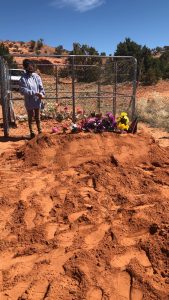
Smith’s sister Florence died in a New Mexico ICU.
“She passed away in an ICU and we had her funeral on Thursday. Of course, it was a difficult setting, mainly because we couldn’t gather,” Smith said.
As the rest of Utah entered the “yellow” phase Saturday, a strict curfew remained in place on the Navajo Nation.
“We are presently in a lockdown on the reservation, about 57 hours each weekend, and will continue for the next three weeks,” Smith said.
All stores, gas stations and restaurants were closed, and leaving home was limited to approved essential workers with permission slips — like Smith. Non-compliance can result in fines of up to $1,000.
“Police are enforcing,” Smith said.
But even when stores are open, essential supplies were scarce and hard to come by.
“Then when they were able to get supplies, they could only buy it one roll at a time,” Tanana said.
Smith said the next closest chain grocery store or Wal-Mart is about three hours away — in any direction.
“Se just have one store in Monument Valley and it has remained open but the supplies are limited because if you run out of necessities in cities, you certainly will run out in a rural setting,” Smith said.
Smith said like many other communities, Monument Valley’s economy has taken a major blow as it is heavily dependant on the tourism industry — like many others, under a complete shutdown.
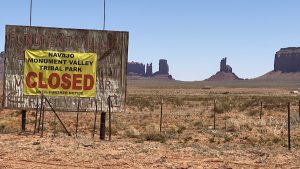
Monument Valley remained closed under the Navajo Nation’s latest weekend curfew. (Photo courtesy Phillip Smith)
“We used to get busloads of people from Germany, from Italy, from France (and) England,” Smith said. “We took them on tours, and people were able to sell their crafts; well now they haven’t been able to do that.
This was one of the reasons Tanana said the effects of the pandemic will have an impact, long after other communities begin on the road to recovery.
“It’s going to be sometime before the curve is flattened in Indian Country and before conditions improve and so until that happens, they really need the support of our communities,” Tanana said.
Smith said several organizations and churches, like The Church of Jesus Christ of Latter-Day Saints, have sent food donations, hygiene kits and personal protective equipment. However, more help was still needed.
Tanana said they are planning for the virus’ resurgence in the fall.
For more information on how you can help visit here.
Coronavirus Resources
- Have you or a family member been affected by coronavirus issues in Utah? KSL TV wants to hear from you. Contact KSL by emailing social@ksl.com.
- What is COVID-19? Here’s What You Need To Know To Stay Healthy
- What We Know And Don’t Know About The Coronavirus
- Four Common Coronavirus Questions Answered
- The latest coronavirus stories from KSL TV can be found at our Staying Safe: Coronavirus section.
- Your Life Your Health: How can parents prepare their home, children against coronavirus?
How Do I Prevent It?
The CDC has some simple recommendations, most of which are the same for preventing other respiratory illnesses or the flu:
- Avoid close contact with people who may be sick
- Avoid touching your face
- Stay home when you are sick
- Cover your cough or sneeze with a tissue and then throw the tissue in the trash
- Wash your hands often with soap and water for at least 20 seconds, especially after going to the bathroom, before eating, and after blowing your nose, coughing or sneezing. Always wash your hands with soap and water if your hands are visibly dirty.
- If soap and water are not readily available, use an alcohol-based hand sanitizer with at least 60% alcohol.
How To Get Help
If you’re worried you may have COVID-19, you can contact the Utah Coronavirus Information Line at 1-800-456-7707 to speak to trained healthcare professionals. You can also use telehealth services through your healthcare providers.
Additional Resources
If you see evidence of PRICE GOUGING, the Utah Attorney General’s Office wants you to report it. Common items in question include toilet paper, water, hand sanitizer, certain household cleaners, and even cold medicine and baby formula. Authorities are asking anyone who sees price gouging to report it to the Utah Division of Consumer Protection at 801-530-6601 or 800-721-7233. The division can also be reached by email at consumerprotection@utah.gov.

